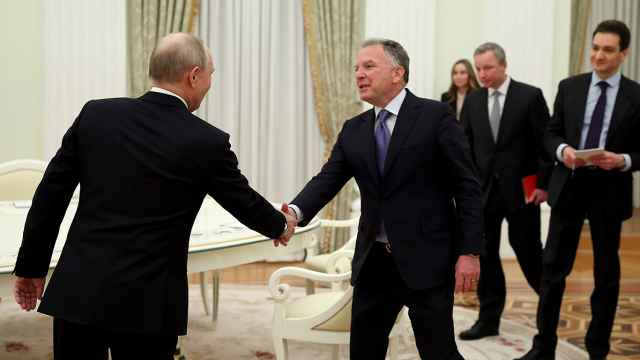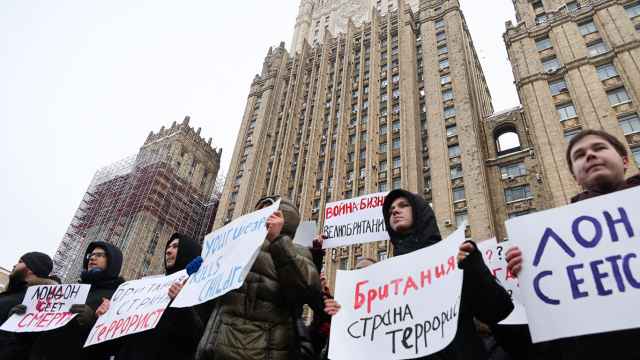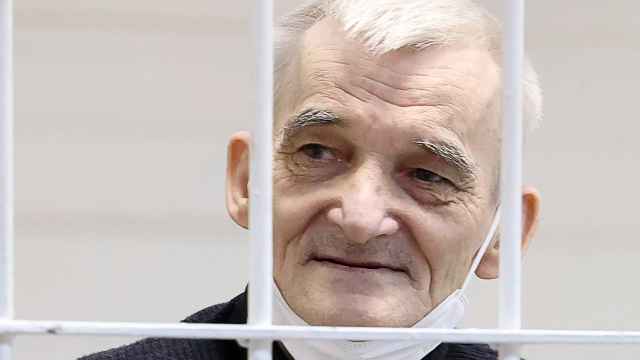Although 2011 is still far from over, it is already likely to go down in history as the year of the Arab Spring. It will be remembered as the year when Arab populations threw down the gauntlet to their stagnating regimes, revised their traditional authoritarian power model and at long last commenced the transition to democracy.
It is also time to consider revising the European Union’s relationship with Russia, which has stagnated rather badly in recent years. Since the “big bang” enlargement of the EU in 2004, Moscow’s relations with Brussels have been increasingly characterized by tension, if not at times crisis, in their energy ties and failure to reach agreement in many areas of common strategic interest. In June, the biannual EU-Russia summit, held in Nizhny Novgorod, was dubbed the “Vegetable Summit’” in the international media as Moscow and Brussels exchanged blows over the Russian ban on vegetable imports from the EU following the E. coli health scare in Germany.
The added value of the high expenditure summits themselves is being questioned by the well-informed European public. Critics argue that such gatherings have become little more than routine meetings. Failure to reach agreement on this form of political framework has done little to inspire investor confidence in Russia among European companies. The inability of Brussels and Moscow to conclude a new agreement also projects the image that the EU is having little impact in helping Russia move toward a law-based society or align its political culture into closer convergence with that of the EU. Despite the large trade turnover between Russia and the EU, the political relationship between Brussels and Moscow seems to be steadily moving along the road to nowhere.
At a time when there is no clear way to strengthen the EU-Russia relationship, one dark horse capable of kick-starting the engine is the much maligned Energy Charter process. There was a lot of hope in the charter when it was conceived and put into legal force during the early 1990s. A fresh beginning appeared to be on the horizon for a newly united Europe, where the charter would create a comprehensive new legal framework designed to underpin burgeoning energy trade between East and West. Despite the noble vision of the charter’s founding fathers, more recent years have brought one disappointment after another.
Years of deadlock in negotiations between Russia and the EU on the Energy Charter Treaty’s provisions governing energy transit have led to bitter feelings. These emotions soured further as a result of the Russia-Ukraine gas disputes between 2006 and 2009 when the treaty’s provisions on transit were breached. The disputes left the charter badly exposed given that it was unable to offer any viable solutions for its member states that found themselves without gas during cold winter periods. In summer 2009, the Brussels-based Energy Charter Secretariat, the administrative body governing the day-to-day workings of the charter and providing legal clarifications for the Energy Charter Treaty, could do little more than look on while a highly alienated Russia announced its intention of all but withdrawing from the Energy Charter Treaty, throwing the two-decade old charter process into its worst crisis. As Moscow proposed its own “conceptual approach for global energy security” and while other EU initiatives on the energy legislation front have become more prominent, the charter found itself increasingly marginalized in its capacity to operate as an instrument of global energy governance.
Yet a sign of optimism may be looming in the shadows. Toward the end of 2011, the EU and the Energy Charter Treaty’s 51 member states will vote to decide upon a new secretary general of the Energy Charter Secretariat. Since its inception, the charter process has had a tacit rule where the post of secretary general be traditionally filled by a political figure from “Old Europe,” while the post of deputy secretary general would be filled by Moscow. During the last decade this formula has provided little more than a recipe for disaster, resulting in decision-making paralysis within the charter secretariat and further politicization of the EU-Russia relationship.
The pending vote on the successor to the Energy Charter’s current secretary general provides all stakeholders with rare opportunity to instill life both into the struggling charter process as well as the wider EU-Russia relationship. Just as this year’s Arab Spring has provided new hope for stagnating Arab governance models, it is high time that both the EU and Russia dispense with the anachronistic tradition of assigning the post of the Energy Charter’s secretary general on the basis of the Old European tradition. Such an appointment will only serve to reinforce all of the negative political capital that Russia and the EU have jointly bagged into the charter process during the last decade. It will continue to damage the EU-Russia relationship looking ahead, while hardly presenting any useful medicine for the onset of Parkinson’s disease.
At the same time, however, the selection of the right candidate from the countries of “New Europe” will do much to bring relief from the frustrations that have entrapped the charter in recent years. Visegrad and Balkan states of New Europe, such as Slovakia and Bulgaria, which lie between Russia and the mainstream EU states of the pre-2004 enlargement, are the key stakeholders in the EU-Russia energy trade. They are highly dependent on Moscow for their energy supplies, while at the same time their membership of the EU makes them loyal servants to Brussels’ vision of the evolving European energy framework. Incidentally, Slovakia and Bulgaria were the EU countries that were hit hardest by the Russia-Ukraine gas dispute of January 2009, in which the charter sat on the sidelines while Bratislava and Sofia negotiated directly with both Moscow and Kiev to end the crisis.
The lesson to be drawn from hindsight is that a new secretary general from those countries would have put the charter’s instruments to far greater effect in an effort to resolve and ultimately prevent such a crisis situation. The crisis would have left a Slovak or a Bulgarian with little choice but to engage the charter’s provisions to collectively work for the energy security of Slovakia, Bulgaria, the other EU states and the remainder of the nations that signed the Energy Charter Treaty, including Russia. Giving the reigns of executive command for the Energy Charter to smaller, yet significant, countries like Slovakia or Bulgaria may raise eyebrows within some circles, yet it is a development that is long overdue. It will create a win-win situation for all of the countries engaged in the wider-European energy trade, and it may be the best chance to revive and maintain the EU-Russia relationship.
Marat Terterov is head of the Brussels-based European Geopolitical Forum, . This is a shortened version of a comment that appeared in New Europe (www.neurope.eu) on Sept. 7.
A Message from The Moscow Times:
Dear readers,
We are facing unprecedented challenges. Russia's Prosecutor General's Office has designated The Moscow Times as an "undesirable" organization, criminalizing our work and putting our staff at risk of prosecution. This follows our earlier unjust labeling as a "foreign agent."
These actions are direct attempts to silence independent journalism in Russia. The authorities claim our work "discredits the decisions of the Russian leadership." We see things differently: we strive to provide accurate, unbiased reporting on Russia.
We, the journalists of The Moscow Times, refuse to be silenced. But to continue our work, we need your help.
Your support, no matter how small, makes a world of difference. If you can, please support us monthly starting from just $2. It's quick to set up, and every contribution makes a significant impact.
By supporting The Moscow Times, you're defending open, independent journalism in the face of repression. Thank you for standing with us.
Remind me later.





